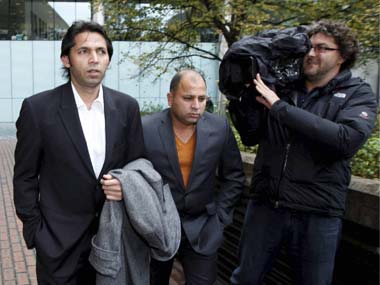Spot-fixing: The clean-up starts here. Or does it?
Ashish Magotra
• November 1, 2011, 20:45:27 IST
The conviction of Salman Butt and Mohammed Asif on charges of spot-fixing is more due to fortuitous circumstance than any real effective policing.
Advertisement
End of Photostory
)